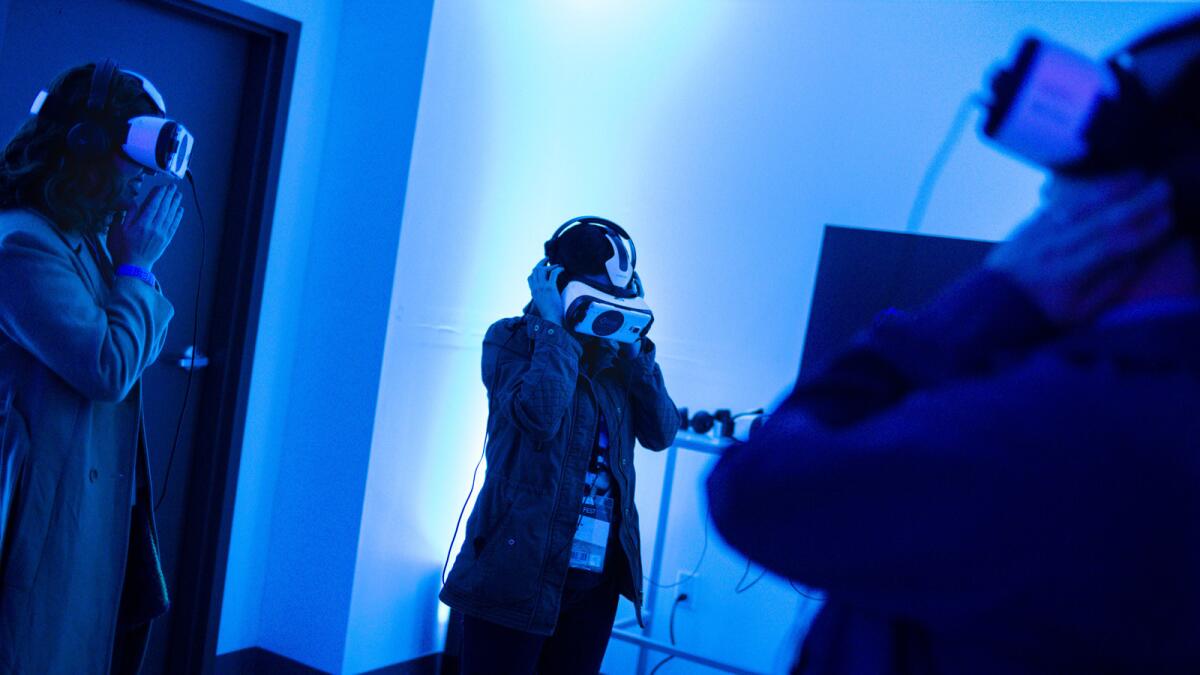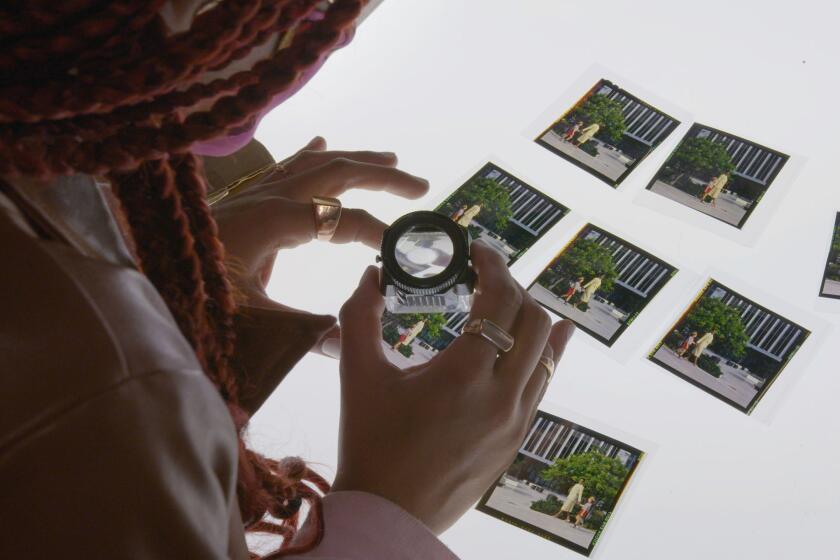VR Watch: Can virtual reality avoid a bubble, AFI panel asks

People watch virtual reality content produced by Vrse.Works, during a filmmaker welcome party on the second night of AFI.
One of the questions people outside (and inside) the expanding world of virtual reality often ask these days is ‘Could this thing be over before it begins?’
It’s a reasonable query. Tech bubbles by now are as reliably recurrent as lunar eclipses, and virtual reality in particular went through a bubble in the early 1990s.
There are all sorts of reasons to believe that won’t happen this go-round — the vast improvements in the technology, the reduction in sickness-inducing images, the proliferating appetite for content. But as with many things in tech, it’s hardly a straightforward issue, and one that it turns out even the most devoted virtual reality pros wrestle with.
SIGN UP for the free Indie Focus movies newsletter >>
“I was on a panel last week where everybody said ‘Is this the boom of the ‘90s? It’s going to go boom and explode,’” said David Rosenbaum of the emerging virtual reality powerhouse Jaunt. “And it’s a really good question,” he added, without offering any easy responses.
Rosenbaum was himself speaking on a panel this week at AFI Fest, where he and others who occupy the intersection of Hollywood and virtual reality were grappling with the notion of a headsetted future. Their comments illustrate both the promise virtual reality offers and the risks associated with turning it into a viable medium, a topic increasingly relevant with the release of the first commercial devices next year.
Part of the issue is just what kind of cinematic content will thrive in virtual reality, at least in the early days. Almost everyone agrees it will be short-form content, not features. That’s about where the consensus stops. Whether the dominant pieces will be fiction or nonfiction, live-action or animated, plot-driven adventures or anti-narrative experiences, interactive or passive, independent or studio, commercial or artistic — it’s all rather open.
There are arguments for and against nearly all of these forms, and which catches on first will turn largely who creates something compelling and whether they make it available in the right places. (Oculus, whose Rift is one of the first headsets to hit the market, is hoping that a classic Pixar-y short helps turn the trick.)
At the moment, commercial content can rule the day. Rosenbaum co-panelist Christina Heller, the founder of a Los Angeles virtual reality production start-up called VR Playhouse, said that big brands are key at her shop -- understandable given both the high costs of production and the suitability of the medium to their ends.
“It’s easy to imagine why it’s cool for a car company because [the user] can be in a car on a race track,” Heller said, also citing the travel and real-estate industries as early investors in virtual reality content. Yet she noted that the idea at her company is for this kind of stuff to pay the bills but not necessarily dominate VR output. It would be of little value, after all, if consumers were inundated with car commercials without the programming that usually surrounds them.
New virtual reality content can get caught in a chicken-and-egg problem that has long vexed those working on new platforms: The technology won’t sell until the content is ready, but there won’t be enough content ready until the technology is selling.
As it turns out, that problem extends to the financial side as well. “Funding content is really tricky right now. There’s no real demand for content,” said Jeffrey Greller, an agent specializing in VR at WME. “It’s pre-consumer. It’s like trying to market an app before the iPhone comes out.”
Or as Casper Von Winterfeldt of the startup BaronVR said, noting some of his own skepticism, “I’m hoping it doesn’t burst like it did in the ‘90s.”
And yet for all these doubts, most of the panelists believe that virtual reality entertainment is coming. In fact, it may have already come.
Joel Newton, who founded the start-up The Virtual Reality Company with Hollywood director Robert Stromberg, said, “A lot of rights holders, I think, missed the debut window for an $8-million big piece of VR.” He contrasted the long gestation period for entertainment content and the imminent arrival of the first wave of devices. “It can sound weird to say someone missed something in VR, but it’s true.”
As with many things in tech, just when you wondered if it was too early, it’s too late.
ALSO:
Johnny Depp and Scott Cooper discuss ‘Black Mass’ at AFI Fest
Why the AFI Fest could be an important piece of the Oscar puzzle
Festival Confidential: Chilean miners turn up for premiere of ‘The 33’
More to Read
Only good movies
Get the Indie Focus newsletter, Mark Olsen's weekly guide to the world of cinema.
You may occasionally receive promotional content from the Los Angeles Times.











